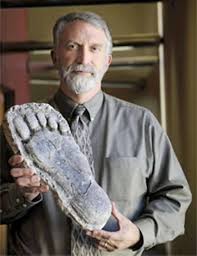Renowned ISU Anthropologist Jeff Meldrum, Bigfoot Researcher, Dies After Brief Battle with Brain Cancer
POCATELLO, Idaho — Dr. Don Jeffrey Meldrum, a longtime professor of anatomy and anthropology at Idaho State University (ISU) renowned for both his academic rigor and his public exploration of cryptozoology, passed away after a short illness, his family has announced. Meldrum died on September 11, 2025, following a brief but determined battle with brain cancer.
An Academic Career Grounded in Evolution and Curiosity
Dr. Meldrum joined ISU’s faculty in 1993, teaching in graduate-level health professions programs where he focused on human anatomy, vertebrate evolutionary morphology, and the origins of modern human bipedalism. His scholarly work included co-editing From Biped to Strider: The Emergence of Modern Human Walking, Running and Resource Transport (2004), which challenged some established assumptions about how and when modern gaits evolved.
Alongside this mainstream academic work, Meldrum pursued public interest in Sasquatch—also known as Bigfoot—lending his professional curiosity and careful analysis to the legends and footprint evidence tied to the creature. He amassed over 300 footprint casts in his laboratory believed by enthusiasts to suggest the creature’s existence.
The Man Behind the Research
In a statement on his professional Facebook page, Meldrum’s family emphasized that, though many knew him for his Bigfoot interest, he was a husband and father first. His wife, Lauren Stewart, remembered him as “a force of nature” who cherished family and teaching, and who met his final days with family at his side.
Reaction and Legacy
Colleagues and students have begun to share memories of Meldrum as not only a scholar, but an inspiring teacher. His ability to bridge rigorous science and phenomena often dismissed by mainstream academia earned him both admiration and critique—a dynamic he navigated with integrity. Expert voices in anthropology and morphology often point to his work on human gait as impactful, and his willingness to engage with public fascination (e.g. Bigfoot) as a reflection of broader questions about what counts as evidence and how scientific inquiry interacts with folklore and culture.
Idaho State University’s website describes his research focus, and his public interviews—such as the one with East Idaho News in 2019—show how Meldrum brought visibility to human evolutionary studies in a way that resonated with both academic and non-academic audiences.
Why This Matters
Dr. Meldrum’s life underscores the value of scholarly courage and curiosity. In a time when scientific communication and public trust can feel strained, his example shows how research grounded in evidence, openness to unconventional questions, and dedication to teaching can amplify both understanding and wonder. His passing is felt not just in Idaho or among Sasquatch enthusiasts, but across fields that examine what it means to be human, where we come from, and how legends inform identity and inquiry.





